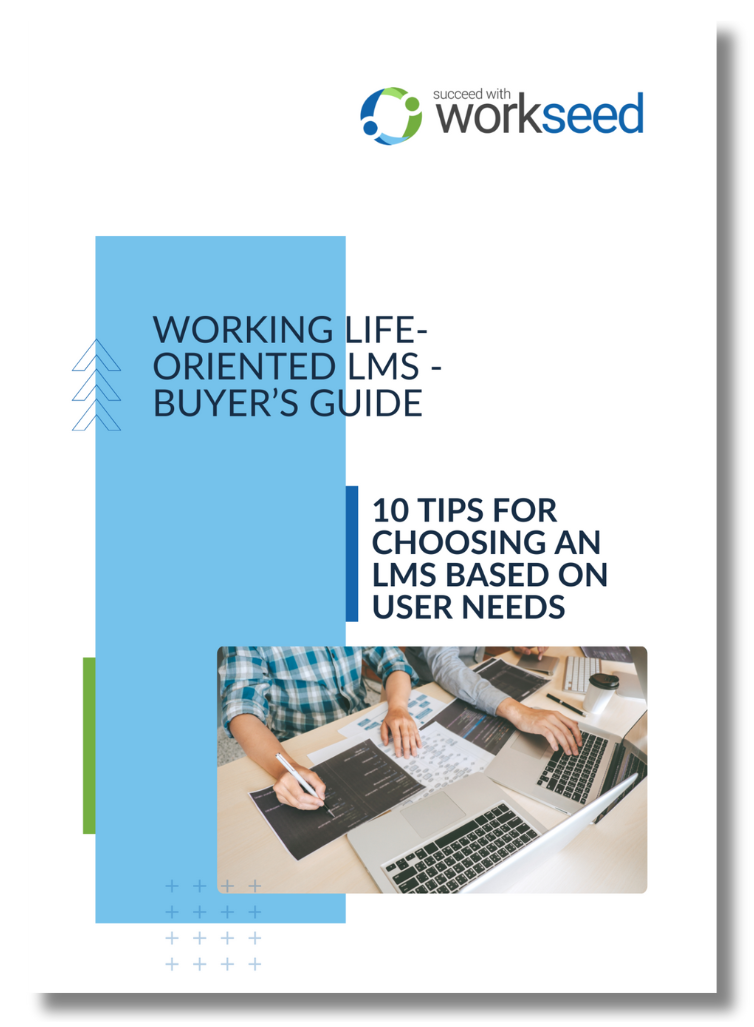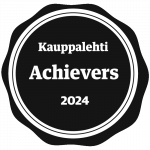[Kuva: Ponsse Oyj]
“Ponsse and Workseed took machine operator training at REDU to a new level”
Ask a Finn and they will tell you that Finland lives off its forest. This belief still holds true. Forestry still constitutes nearly 20 % off all Finnish exports.
Despite all technological advances and automatization, the forest industry still requires people to work in forests, often in harsh conditions. Lucky for them, there is an extensive selection of heavy machinery to cut down, processing, and transport trees.
A common denominator for all these machines is that they require highly trained experts for their use. It goes without saying that a summer intern with tractor experience will not be allowed to pilot a machine that costs up to half a million euros.
Forest machine operator degree includes thorough education and intensive practical training. In fact, it is one of the most expensive educational programs available in Finland.
This article will discuss application of modern digital learning tools through the lens of the forest industry – and through a practical example of our collaboration with Ponsse to improve forest machine operator’s degree program. We will cover the following topics:
How modern digital tool can improve student engagement and motivation
What single problem can reduce the ROI of education organizer’s investments
How existing tools can be adapted to increase productivity in vocational education
How a training provider can educate machine operators with consistent results, higher quality, and decreased cost
Remote administration of vocational training
Educational programs apply generally a variation of the following pedagogical model:
Theory courses can usually be completed online or through a hybrid model. Remote methods provide greater flexibility and require greater activity from the student.
Effective and successful online learning requires an adequate platform. An adequate platform provides automatic and intuitive tools to streamline administrative duties and makes communication between teacher, student, and training supervisor easy. It supports all the four phases of the pedagogical model.
An optimal platform ensures compliance in terms of meeting the responsibilities of the education organizer, such as providing individualized support in a meaningful way and adapting study units to students’ individual needs. Similarly it facilitates users’ daily responsibilities, such as meeting deadlines and organizing tasks.
Finally the platform should allow for automatic transfer of data to other relevant databases, which reduces manual data entry work. Data entry is known to waste staff’s time, increase work-related frustration, and increase risk of human error. The more time is wasted with administration, less there is for tutoring students.
Challenge: underutilization of simulators
Work machine simulator tools have developed tremendously. Currently they are able to provide realistic imitations of operator work, and nearly all providers of operator’s training have acquired simulators. Simulators also provide extensive data on factors like productivity of work and mistakes that are being committed.
A significant challenge of simulators is that they usually work as separate, gamified learning environments, where students work independently. Teachers bear the bulk of responsibility over exploiting simulators as a resource to assess student’s progress. Often this requires significant time, effort, and knowledge of the teacher. This is why simulator sessions often become a separate, under-exploited component of on-the-job-learning.
In a sense, this is not surprising. Simulator training is often not extensively considered in curricula. Little time is thus dedicated to supervising simulator use, and it rarely counts towards assessing student’s progress.
In worst cases this means that an investment in simulator tools, which can cost an organization tens of thousands of euros, is not exploited to its full potential. Considering how expensive machine operator training is to begin with, this kind of underperformance can have a serious negative reputational impact.
Goal: a turnkey solution for operator training
The forestry training center in Lapland Federation of Education (REDU) identified underperformance in machine operator training and initiated a project to improve efficiency. A significant component of the project was improving simulator use. REDU identified required improvements and selected the forest machine manufacturer Ponsse to meet them.
Ponsse on the other hand approached us at Workseed to exploit our experience of pedagogy, knowledge of vocational education, and our unique learning platform. The purpose of this three-party collaboration between REDU, Ponsse, and Workseed was nothing less than creating a holistic solution to manage the entire education process of machine operators.
An optimal solution would bring together and integrate all online studies, simulator training, and practical on-the-job-learning into the same platform where every single detail could be easily monitored and administered. A solution like this would make it easy for the teacher to assess student’s progress and facilitate learning for students.
Simulators by Ponsse + Integration by Workseed = unique solution for learning
The brand new holistic turnkey solution was ready to use for autumn semester 2021 in the forestry training at Lapland Federation of Education REDU.
The solution was built on the infrastructure of the Workseed LMS (Learning Management System). It brought together existing learning environments, that is simulators, practical task assessment, and theoretical studies. All the elements work together as an easily understandable learning path.
Screen capture of the Workseed learning path.
For the student, the platform is nothing short of a miracle. It is easy to understand the entirety of the degree program and what competencies it is necessary to reach at every step. The steps necessary to complete before beginning simulator training and moving into real-world practice are easily identifiable. No more guessing what courses and certificates need yet to be completed, and how different study units are related to each other.
Easy administration is also a factor increasing study motivation. Individualized study path allows fast-tracking courses and it is possible to pass the degree program in time and even faster. No need to huddle in a group and wait for the weakest link to finish courses. Professional competencies can be formally acquired faster than ever.
The teacher does not benefit any less. Accounting for individual students’ progress is easier than ever, without a single post-it note or shabby notebooks. Neither is there any need to log into simulator programs or micromanage how they are being used. All manual work is now officially history.
The Workseed LMS takes care of everything that used to be manual and automatizes most processes. No more worries about students missing deadlines or supervisors forgetting to assess tasks.
So if everything is automatic, then what are the teachers going to do?
Without administrative work, teachers are free to produce and update pedagogical materials, monitor their students, and provide individual support. Workseed LMS makes it easier to identify struggling students and facilitates individual support and interventions. Helping students to finish their degrees and avoiding dropping out is easier and faster.
“Ponsse and Workseed took machine operator training at REDU to a new level” ILKKA RANTAHALVARI – REDU
Interested?
If you agree that dispersed notes, manual data-entry, and trying to follow up internship supervisors with email are things of the past, why don’t you get in touch with our experts and book a free session to discuss how a modern LMS platform could bring your pedagogical models to a new level.
Or if you are already considering investing into an LMS, check out our article on the 10 criteria you should consider before buying.
NB: A modern LMS is a useful tool not only in universities of applied sciences and vocational schools, but also in the private sector. Many HR functions – job orientation for new employees, reskilling or upskilling product experts, or simply developing the sales team – are much easier with a learning platform optimized for on-the-job-learning.














